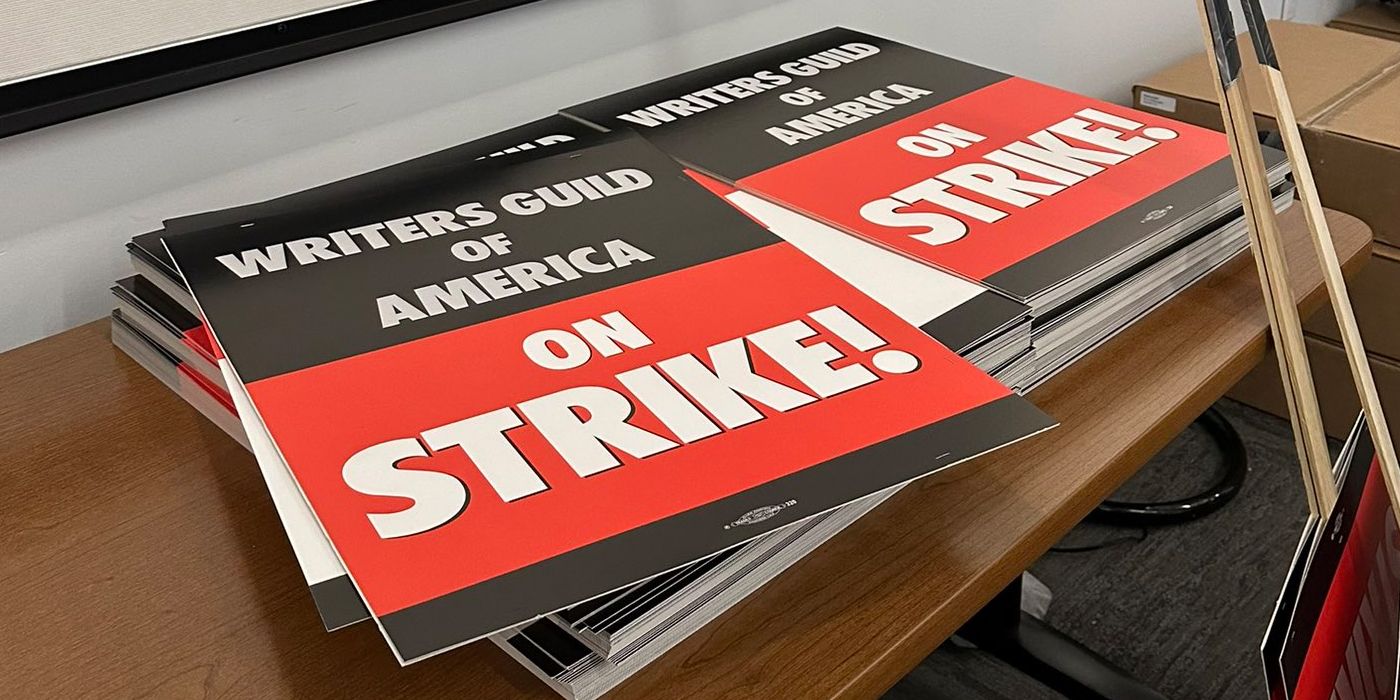On Tuesday, May 2, more than 11,000 writers of the Writer's Guild Association (WGA) went on strike. The board of directors, which consists of both the East and West Coast councils, called for an immediate strike. This strike was voted unanimously after they couldn't come to agreement with Hollywood studios about the terms of their TV and film contract that was expiring on Monday. But what caused them to strike and feel as if the writers are facing a crisis of disagreement between the studios?
The Alliance of Motion Picture and Television Producers (AMPTP) met with the WGA to discuss what would be entailed in their new contract after their past three-year contract expired. While the AMPTP felt like they were offering generous compensation to the writers, the WGA strongly disagreed as many of their requests for a livable job were not met. The WGA released a document describing what they proposed and what was or wasn't agreed to. Screen pay has decreased by 14% over the last 5 years. Writers are feeling more like disposable freelance workers current state of streaming and broadcast projects rather than contributing members to a project with stability. After a week of negotiation and still no agreement, writers went on strike which is the first strike since 2007. That 2007 strike lasted 100 days and cost LA $2.1 billion dollars.
The Terms of Disagreement
The main point of disagreement comes in standard base pay, which has not advanced as technology or television and film have advanced. The introduction of streaming services initially brought more jobs, but it changed the landscape of how writers find jobs. Previously, broadcast networks would order upwards of 20 episodes for a show that would span over a timeframe of 10 or so months. Over the last few years, the number of episodes has decreased to 8 to 10 episodes. This means that more writers are having to find more gigs frequently in order to make ends meet rather than a fixed amount of time spent on one project.
The WGA proposed minimum increases of compensation, including residuals, be 6%, 5%, and 5% across the next three-year contract, to which the AMPTP proposed 4%, 3%, and 2%. Residuals made from streaming shows are far lower than residuals made from reruns or broadcast shows for writers, so demands for some level of equality in that regard is crucial to the guild. The next proposal the WGA made is that, based on viewership of the show like a tiered reward program, writers that are on more popular streaming shows would be compensated accordingly. The AMPTP rejected that proposal entirely.
The guild also wants to preserve the writer's room, by requesting there be a minimum staff of 6 Writers, which would include 4 Writer-Producers, for the pre-greenlight rooms. This would also include the minimum staff is guaranteed to work for 10 consecutive weeks. For post-greenlight rooms, the guild requests 1 writer per episode up to 6 episodes, then 1 extra writer added per every 2 episodes after 6 episodes. That also includes that the writers on staff would get a minimum of 3 weeks worth of work per episode, half the minimum staff be employed during production, and then keep 1 writer on for post-production. This offer from the guild allows writers to feel like they are supported on a project rather than feeling overworked as well as underpaid to produce the demands set for them. The AMPTP rejected that without a counteroffer.
AI is also a problem for writers nowadays. The guild proposed that the use of AI is regulated on Minimum Basic Agreement (MBA) covered projects. This would mean that AI cannot be used to write or rewrite existing and covered MBA projects. Instead of agreeing to this the AMPTP offered annual meetings to discuss how technology is advancing in the field. This provides zero security for the length of a project, streaming or broadcast, and makes writers fear that their jobs are unnecessary with the use of AI.
With the root of the issue being fair pay, the guild also requested that writers who work on streaming projects with a budget of $12 million or more be paid equivalent to those who write for movies released in theaters. The AMPTP also rejected the guild's request for Pension and Healthcare contributions.
What Is At Stake With The Strike Continuing?
If we reflect on the last strike that happened in 2007, we can expect that this current strike will cause a significant ripple in the tv and film industry and could cost LA and Hollywood a lot of money. Without significant writers, the backlog of content will likely dwindle quickly. Since streaming services are the main source of digestible content for those watching tv series and movies now, how long will subscribers go with a service that isn't producing new content? If a studio has fully bought a script that has already been written, they are still within their rights to use that script. The only issue with that is if there needs to be a rewrite. If a director or actor doesn't particularly like a line of dialogue, there isn't anyone to turn to during this strike to fix the script.
As of right now, late-night live shows have already started going dark, and plan to air reruns instead of new episodes. NBC released a statement that Saturday Night Live would be airing reruns due to writers' strike until further notice. Other shows affected and going dark by the strike include The Tonight Show Starring Jimmy Fallon, Jimmy Kimmel Live!, The Late Show with Stephen Colbert, Late Night with Seth Myers, and The Daily Show. It is also possible that the Tony Awards could be modified or canceled if the WGA is still on strike. It will become a struggle for scripted shows to continue on with the writers being on strike, so major production hubs like Georgia, New York, and New Mexico could also feel the effects that Southern California will feel if the strike lasts.
On May 10, the Directors Guild of America will also engage in negotiations and talks with the AMPTP in regard to their current contract that expires at the end of June. There are currently no scheduled renegotiation dates between the WGA and the AMPTP. However, the AMPTP has released a 4-page document describing their rebuttal to the document the WGA released. For now, writers continue to strike and fight for what they feel is necessary for their careers.



